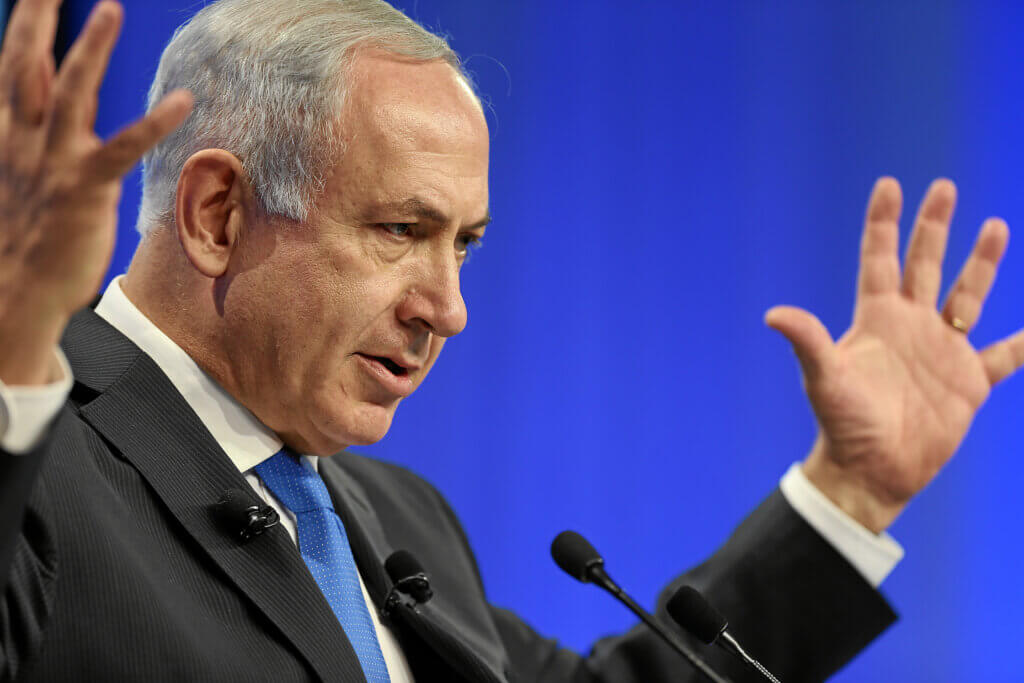If you’re surprised, you haven’t been paying attention.

Yesterday, Israeli Prime Minister Benjamin Netanyahu made waves during an i24 interview when he stated that “with or without an accord, the State of Israel must have security control over the entirety of the territory west of the Jordan River.” In other words, Israel must be the sole sovereign over Palestine “from the river to the sea.” But it doesn’t mean Palestine will be free.
More
The West has fumbled in confusion over what to do with this one. How can the two-state delusion exist alongside such unambiguous proclamations?
In a statement out of touch with reality, White House National Security adviser John Kirby tried to reassure reporters onboard Air Force One shortly after Netanyahu’s speech that “there will be a post-conflict Gaza,” and “no reoccupation of Gaza.” It is to be expected that he and the other puppets will continue to tow the official line, because…what else are they supposed to do?
U.S. State Department spokesperson Matthew Miller said the same yesterday:
“There is no way to solve [Israel’s] long-term challenges to provide lasting security, and there is no way to solve the short-term challenges of rebuilding Gaza, of establishing governance in Gaza and of providing security for Gaza, without the establishment of a Palestinian state.”
These are just words. If Israel just gets more weapons and no sanctions, it will continue to feel emboldened to say — and do — what it wants.
But the idea that Netanyahu’s comments are a surprise to anyone is truly deserving of scorn because this is far from the first time that the Prime Minister has displayed such candor in rejecting a Palestinian state. In July 2014, he said: “I think the Israeli people understand now what I always say: There cannot be a situation, under any agreement, in which we relinquish security control of the territory west of the River Jordan.”
Have we been paying attention?
Likewise, it isn’t even controversial to say that these maximalist territorial claims have been a part of the Likud’s party platform since 1999, which states: “The Government of Israel flatly rejects the establishment of a Palestinian Arab state west of the Jordan River.”
This statement was a generation ago, and it’s never been rescinded or revised. Have we not been paying attention? Even Hamas has revised its radical 1988 charter, presenting a new one in 2017 that accepted a Palestinian state on the 1967 borders:
“Hamas considers the establishment of a fully sovereign and independent Palestinian state, with Jerusalem as its capital along the lines of the 4th of June 1967, with the return of the refugees and the displaced to their homes from which they were expelled, to be a formula of national consensus.”
One may say that words on paper and realpolitik are two different things, but at least the words are there in the Hamas charter, showing a public willingness for political engagement and diplomacy that Israel has ignored time and again. It is part of what Jacobin points out as “Israel’s congenital inability to take yes for an answer.”
Some might be tempted to explain Netanyahu’s recent statement away by saying that he is just engaging in hyperbole — that’s how most Israel defenders have chalked up the genocidal advocacy of numerous Israeli ministers, most perversely exemplified by Fania Oz-Salzberger’s suggestion that the genocidal incitement of Israeli officials is just “wild freedom of speech.”
Will we fall for it again? Or will we finally start taking seriously the fact that no Israeli government, none — not even under Rabin in 1995 — has ever intended to allow for the existence of a Palestinian state?
Leave a Reply